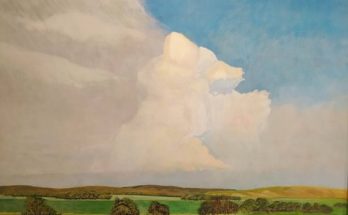By Clare Howell
Old Soviet joke: Q. What’s a historian? A. Someone who can predict the past.
As a native San Antonian, not yet into my wits in the mid-1950s, watching Fess Parker (TV’s Davy Crockett, roaming the forests of Kentucky doing good deeds), I was all in on the myth of the Alamo—the daring, selfless last stand by a scrappy band of volunteers, all giving their lives so that freedom would triumph over the tyranny of Santa Anna. No doubt those 185 who perished, along with 400 Mexican soldiers, displayed great physical courage. But another aspect of this struggle for ‘freedom over tyranny’ was freedom to own human chattel, not to mention taking Mexican land by force and declaring themselves a Republic. We call this Manifest Destiny.
“Forget the Alamo” comes from three Texans who survey the literature and movies—John Wayne’s 1960 “The Alamo!” through generations of haunted histories and hagiographies of Travis, Bowie, and Crockett in what came to be known as the Heroic Anglo Narrative; and on to new Latino, Indigenous, and Black voices adding correctives to what one young revisionist historian calls, “The gunsmoke and bullshit.”
“Texas must be a slave country, circumstances and unavoidable necessity compels it. Nothing is wanted but money, and negroes are necessary to make it,” declared Stephen F. Austin in 1832.
In the 1820s, the Texas territory of Mexico was sparsely inhabited; small farms were hard to sustain because of the climate and terrain, but primarily because of Comanche depredations—the Indians laid waste to ranches and farms whenever they wanted cattle, horses, and supplies. The Mexican government couldn’t subdue them so they ordered the territory evacuated. Then American settlers were invited to come in and establish farms to secure the territory. They didn’t foresee the coming of cotton.
The cotton gin, invented in 1793, only began to make large plantations economical in the 1830s. In the early 1800s, the south’s major crops were sugar, rice, and tobacco, none of which were overly profitable. But, within 15 years, “cotton and slavery transformed Texas from a blood-soaked semi-wilderness into a place where fortunes were made.”
Mexicans, who freed themselves from Spanish oppression after 300 years in 1810, were abolitionists. Americans liked to consider the new Mexican government backward, but it was dedicated to liberal ideas. “Equal rights for all races had been the revolution’s rallying cry; in a land where 60 percent of the population was of mixed race, this was a powerful message.”
Southern Americans of means believed slavery, which had existed throughout recorded history, was ordained by God. They held it a sacred duty to spread American democracy and slavery, and they weren’t going to let Mexicans stop them.
This created an untenable situation for both sides. Mexico’s pyrrhic victory at the Alamo—brought on when they levied a tax for the first time on the American settlers and forbade further immigration from the U.S.—led to Texas revolting and seceding from Mexico and getting away with it.
Old axiom: Might doesn’t make right; but it determines who’s left.
* «Forget the Alamo: The Rise and Fall of an American Myth” is a book written by Bryan Burrough, Chris Tomlinson, Jason Stanford (Penguin Books, 2021).




